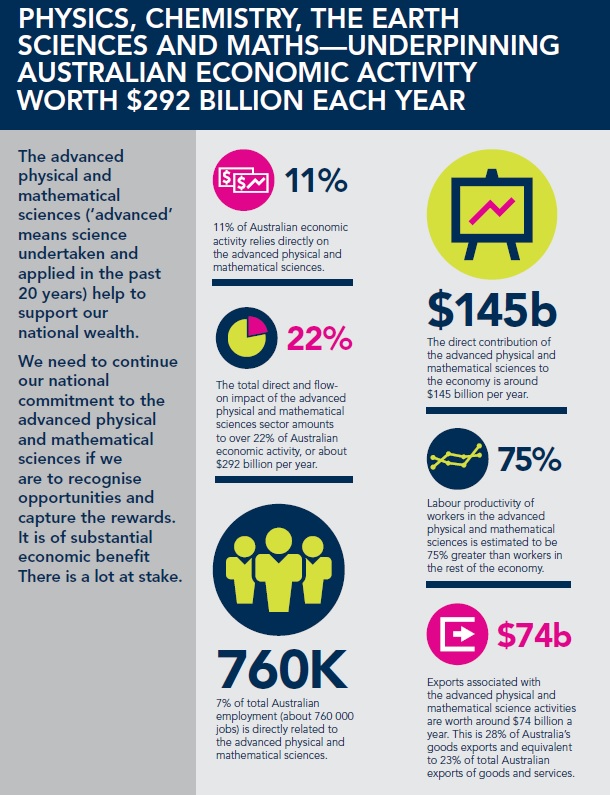Advanced physical and mathematical sciences make a direct contribution of around $145 billion a year to the Australian economy or about 11 per cent of GDP, according to a landmark economic report released today.
The report, entitled The importance of advanced physical and mathematical sciences to the Australian economy, was commissioned by the Office of the Chief Scientist and the Australian Academy of Science and produced by the Centre for International Economics (CIE). It details how physics, mathematics, chemistry and earth sciences benefit the Australian economy.
Other key findings of the report include:
The figures in the report are conservative and only include the economic benefits of discoveries and innovations implemented in the past 20 years in physics, chemistry, earth sciences and the mathematical sciences.
The report will be launched today at Parliament House in Canberra by Australia's Chief Scientist Professor Ian Chubb, CIE executive director David Pearce, and the chair of the National Committee for Physics Professor Hans Bachor.
A copy of the report can be found at www.chiefscientist.gov.au and www.science.org.au/publications/science-impacts-economy.

Home page photo credit: Martin Kingsley from Melbourne, Australia 'Cashmoney'
© 2025 Australian Academy of Science